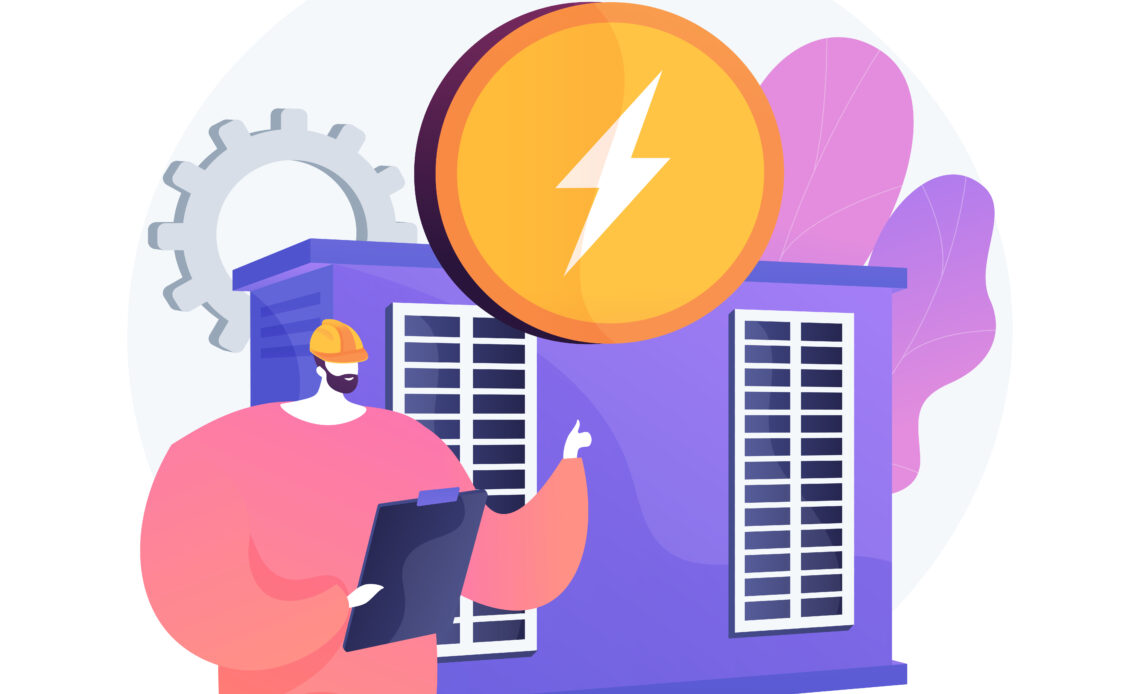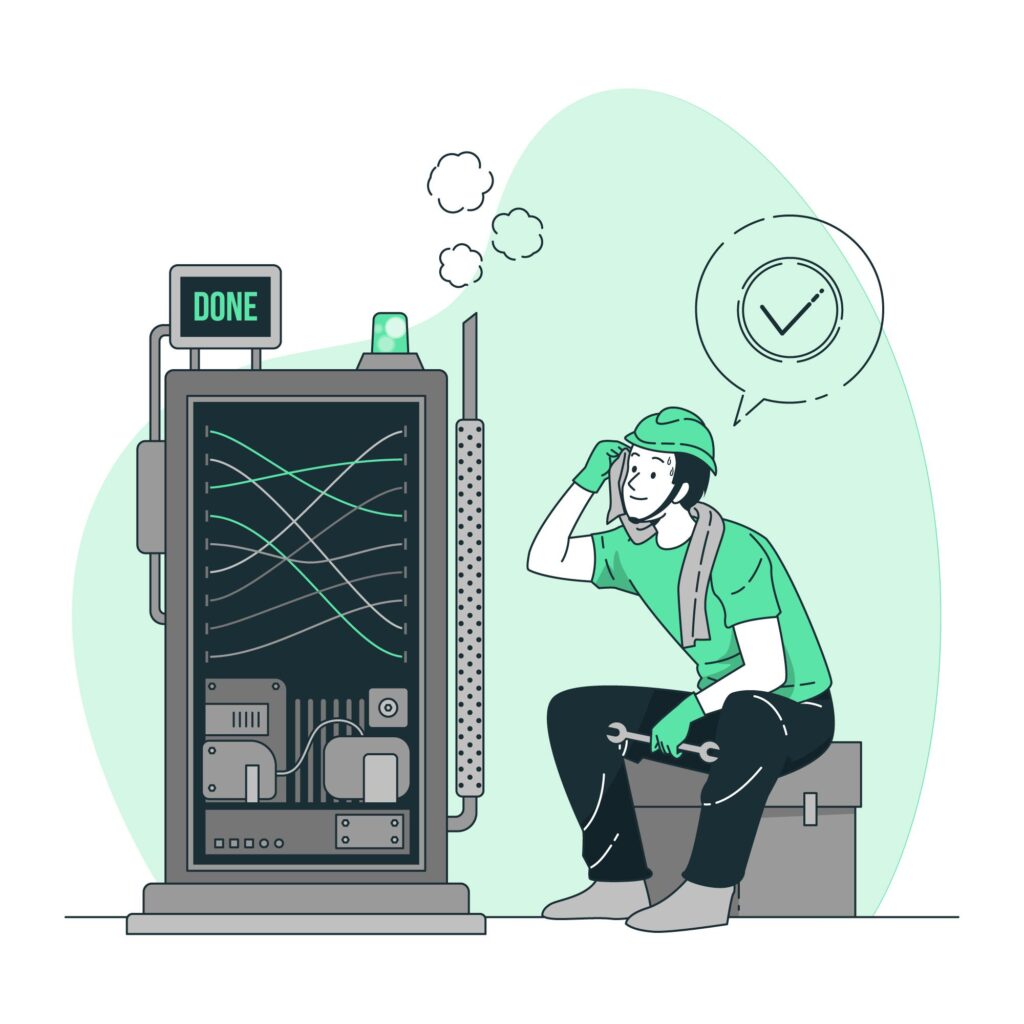
Critical power management is paramount for business continuity, especially in the digital era where uninterrupted operations are essential. Companies heavily rely on a stable power supply for vital functions, such as data centers, communication networks, and equipment operation. Any disruption, whether due to natural disasters or equipment failure. Can lead to significant financial losses and operational downtime, underscoring the importance of robust power management solutions.
One crucial aspect of critical power management involves implementing reliable backup systems like refurbished UPS (Uninterruptible Power Supply) units. From reputable brands such as APC and CyberPower. These UPS units, along with APC battery backups and replacement batteries. Ensure seamless power transition during primary power failures, safeguarding critical infrastructure and preventing data loss.
Furthermore, proactive maintenance, including APC battery replacement and regular UPS battery replacement. Is essential to maintain the reliability and performance of power backup systems. By adhering to a proactive maintenance schedule, businesses can mitigate the risk of unexpected downtime and optimize. The lifespan of their UPS units and batteries.
Critical power management encompasses a range of strategies and technologies, including UPS solutions from APC and CyberPower. Replacement batteries, and proactive maintenance. By investing in robust power management solutions and adhering to best practices. Businesses can minimize the impact of power disruptions, maintain operational continuity, and ensure business resilience in today’s dynamic environment. Engineers with battery charging, clock and stars with rocket. Fast charging technology, fast-charge batteries, new battery engineering concept. Bright vibrant violet vector isolated illustration

The Importance of Uninterrupted Operations
Power disruptions can have profound financial and operational repercussions on businesses. The impact extends beyond immediate inconveniences, affecting various aspects crucial for sustained success.
- Financial Losses: Power outages directly translate to lost revenue due to halted operations. Every moment of downtime represents potential income lost, impacting profitability and hindering growth
- Operational Disruption: Disruptions in power supply can lead to damaged equipment and interrupted processes. The downtime required for repairs or system resets further exacerbates the operational impact, delaying projects and increasing overhead costs.
- Reputation Damage: Consistency is key to maintaining customer trust and loyalty. Any disruption in service due to power failures risks tarnishing reputation and eroding client confidence. Negative experiences can lead to customer churn and hinder future business opportunities.
In today’s highly competitive market, the necessity of reliable power solutions cannot be overstated. Businesses must prioritize uninterrupted operations to remain agile and responsive in dynamic environments. Investing in robust power management solutions. Such as UPS systems and backup batteries, is paramount to mitigate risks and ensure continuous operation even during adverse circumstances. By proactively addressing power management challenges and implementing reliable solutions. Businesses can safeguard their financial stability, preserve their reputation, and maintain a competitive edge in the market.
Comprehensive 24/7 Support Systems:
In the realm of critical power management, the availability of comprehensive support systems is indispensable. Ensuring uninterrupted operations requires round-the-clock vigilance and swift resolution of any power-related issues.
- Responsive Assistance: Round-the-clock support guarantees timely assistance for businesses encountering power-related challenges. Whether it’s a sudden outage or an equipment malfunction, having 24/7 support ensures immediate response and minimizes downtime.
- Minimizing Downtime: The ability to swiftly address power disruptions is crucial for minimizing downtime. Comprehensive support systems offer proactive monitoring and troubleshooting, enabling businesses to identify and rectify issues before they escalate. Thus reducing the impact of downtime on operations.
- Risk Mitigation: Having robust support systems in place is instrumental in mitigating risks associated with power disruptions. By providing ongoing monitoring and maintenance, support teams can help businesses. To identify vulnerabilities and implement preventive measures to safeguard against potential failures.
- Operational Continuity: Continuous support ensures operational continuity even in the face of unforeseen challenges. Businesses can rely on these support systems to maintain critical infrastructure, optimize performance, and uphold service levels. Thereby safeguarding their operations and preserving customer satisfaction.
In essence, comprehensive 24/7 support systems are essential components of effective critical power management. By offering responsive assistance, minimizing downtime, mitigating risks, and ensuring operational continuity. These support systems play a vital role in maintaining business resilience and competitiveness.
Expert UPS Installation and Setup:
Professional installation and setup of Uninterruptible Power Supply (UPS) systems are critical for ensuring optimal performance and reliability in safeguarding against power disruptions.
Precision Installation: Expert technicians ensure the precise installation of UPS units, taking into account factors such as load requirements, environmental conditions, and safety standards. This meticulous approach minimizes the risk of installation errors and ensures the system operates at peak efficiency.
Customized Configuration: Installation experts tailor the setup of UPS systems to meet the specific needs of the business. This customized configuration may include load balancing, redundancy planning, and integration with existing power infrastructure, ensuring seamless operation and maximum protection.
Adherence to Standards: Professionals adhere to industry best practices and manufacturer guidelines during installation, guaranteeing compliance with safety regulations and warranty requirements. By following established installation standards, businesses can mitigate risks and optimize the longevity of their UPS systems.
Thorough Testing: Upon installation, experts conduct comprehensive testing to verify the functionality and effectiveness of the UPS setup. This testing process identifies any potential issues or areas for optimization, allowing for adjustments to be made proactively before deployment.

Ongoing Support: In addition to installation, expert technicians provide ongoing support and maintenance services to ensure the continued reliability and performance of UPS systems. This includes periodic inspections, firmware updates, and troubleshooting assistance to address any emerging issues promptly. UPS installation and setup are essential components of comprehensive power management strategies. By entrusting installation to skilled professionals, businesses can optimize the performance, reliability, and longevity of their UPS systems, thereby enhancing their resilience against power disruptions and safeguarding critical operations.
Advanced UPS Monitoring for Proactive Management
Advanced UPS monitoring systems play a crucial role in proactive power management, ensuring the continuous operation and optimal performance of critical infrastructure. By leveraging cutting-edge technology, businesses can detect and address potential issues before they escalate, minimizing the risk of downtime and maximizing efficiency.
- Real-time Monitoring: Advanced UPS monitoring solutions provide real-time insights into the status and performance of UPS units, allowing businesses to monitor key metrics such as battery health, load levels, and temperature fluctuations. This real-time visibility enables proactive identification of issues and timely intervention to prevent disruptions.
- Predictive Maintenance: Utilizing predictive analytics, advanced monitoring systems can forecast potential UPS failures based on historical data and performance trends. By identifying anomalies and warning signs in advance, businesses can schedule proactive maintenance, such as APC battery replacement or UPS firmware updates, to prevent costly downtime and equipment damage.
- Remote Management: Many advanced UPS monitoring solutions offer remote management capabilities, allowing administrators to monitor and control UPS units from anywhere with an internet connection. This remote accessibility enables swift response to alarms or alerts, as well as the ability to troubleshoot issues remotely, minimizing the need for onsite intervention.
- Customized Alerts: Businesses can configure advanced monitoring systems to generate customized alerts and notifications based on predefined thresholds or conditions. This proactive alerting mechanism ensures that IT staff are promptly notified of any potential issues, allowing them to take immediate action to resolve problems before they impact operations.
- Integration with Management Systems: Advanced UPS monitoring solutions often integrate seamlessly with existing management systems, such as network management platforms or data center infrastructure management (DCIM) software. This integration enables centralized monitoring and management of UPS units alongside other critical infrastructure components, streamlining operations and enhancing overall visibility.
- Advanced UPS monitoring systems empower businesses to take a proactive approach to power management, leveraging real-time data, predictive analytics, and remote management capabilities to ensure uninterrupted operations and mitigate the risks associated with power disruptions. By investing in advanced monitoring solutions and leveraging their capabilities effectively, businesses can optimize the performance and reliability of their UPS infrastructure, thereby enhancing business continuity and resilience.
Customized Power Solutions for Every Business:
Tailoring power solutions to the specific needs and requirements of each business is essential for maximizing efficiency, scalability, and resilience. By customizing power solutions, businesses can ensure that their critical infrastructure is adequately protected while also optimizing resource utilization and minimizing costs.
- Assessment and Analysis: Before implementing a power solution, it’s crucial to conduct a thorough assessment of the business’s power requirements, including factors such as load capacity, uptime needs, and budget constraints. This assessment provides valuable insights into the specific challenges and opportunities faced by the business, guiding the customization process.
- Scalability and Flexibility: Customized power solutions should be designed with scalability and flexibility in mind, allowing businesses to adapt and expand their infrastructure as needed. Whether it’s adding additional UPS units, expanding battery backup capacity, or integrating renewable energy sources, the solution should be able to grow alongside the business without major disruptions.
- Integration with Existing Infrastructure: Custom power solutions should seamlessly integrate with existing infrastructure and IT systems, ensuring compatibility and minimizing disruption during implementation. Whether it’s integrating with APC UPS systems, CyberPower UPS units, or other components of the power infrastructure, compatibility is key to achieving a cohesive and efficient solution.
- Optimization for Efficiency: Custom power solutions should be optimized for efficiency, maximizing the use of resources while minimizing waste. This may involve implementing energy-saving features, load-balancing algorithms, or scheduling optimizations to ensure that power is used effectively and efficiently across the business’s operations.
- Compliance and Safety: Custom power solutions should also prioritize compliance with regulatory standards and safety requirements. Whether it’s ensuring that UPS units meet industry certifications or implementing safety protocols for battery handling and maintenance, compliance and safety are paramount to protecting both the business and its employees. Customized power solutions offer businesses the opportunity to optimize their power infrastructure to meet their specific needs and requirements. By conducting a thorough assessment, prioritizing scalability and flexibility, integrating with existing infrastructure, optimizing for efficiency, and ensuring compliance and safety, businesses can create a power solution that not only meets their current needs but also prepares them for future growth and challenges.
The Role of Advanced Services in UPS Management:
Advanced services in UPS management encompass a range of diagnostic and maintenance offerings aimed at enhancing the reliability, efficiency, and longevity of UPS systems. By leveraging advanced technologies and specialized expertise, businesses can proactively address potential issues, optimize performance, and minimize the risk of downtime.
- Thermal Imaging and Diagnostics: One key advanced service is thermal imaging. Which enables technicians to detect potential issues within UPS systems by visualizing temperature variations. By identifying hotspots or abnormal heat patterns, technicians can pinpoint potential failures before they occur. Allowing for preemptive maintenance and minimizing the risk of critical system downtime.
- Remote Monitoring and Management: Advanced UPS management services often include remote monitoring and management capabilities. Allowing technicians to monitor UPS performance and diagnose issues from a centralized location. This remote accessibility enables swift response to alarms or alerts, as well as proactive troubleshooting to address potential problems before they impact operations.
- Predictive Maintenance and Analytics: Utilizing predictive maintenance algorithms and analytics. Advanced UPS management services can forecast potential failures based on historical data and performance trends. By identifying patterns and trends indicative of impending issues. Technicians can schedule proactive maintenance interventions, such as UPS battery replacement, to prevent costly downtime and equipment damage.
- 24/7 Technical Support: Many advanced UPS management services offer 24/7 technical support. Ensuring that businesses have access to expert assistance whenever they need it. Whether it’s troubleshooting an issue, scheduling maintenance, or providing guidance on best practices. Round-the-clock support ensures that businesses can maintain uninterrupted operations and minimize the impact of power disruptions.
- Training and Education: Some advanced UPS management services also include training and education programs for IT staff and operators, ensuring that personnel have the knowledge and skills required to effectively manage and maintain UPS systems. By investing in training and education, businesses can empower their teams to optimize UPS performance and enhance overall reliability.
In summary, advanced services play a crucial role in UPS management. Providing diagnostic capabilities, remote monitoring and management, predictive maintenance, round-the-clock technical support, and training and education. By leveraging these advanced offerings, businesses can maximize the reliability. Efficiency, and longevity of their UPS systems, thereby ensuring uninterrupted operations and mitigating the risks associated with power disruptions.
Conclusion
In conclusion, effective power management is vital for business continuity and success. From uninterrupted operations to advanced monitoring and maintenance. Investing in reliable UPS solutions like refurbished ups units, APC battery backups, and CyberPower systems is crucial. Customizing power solutions and future-proofing with scalable UPS options ensures resilience and efficiency. Businesses are urged to assess their power systems and upgrade for optimized performance, safeguarding against downtime and ensuring operational continuity. Take proactive steps now to enhance your power management, ensuring your business remains resilient and competitive.






